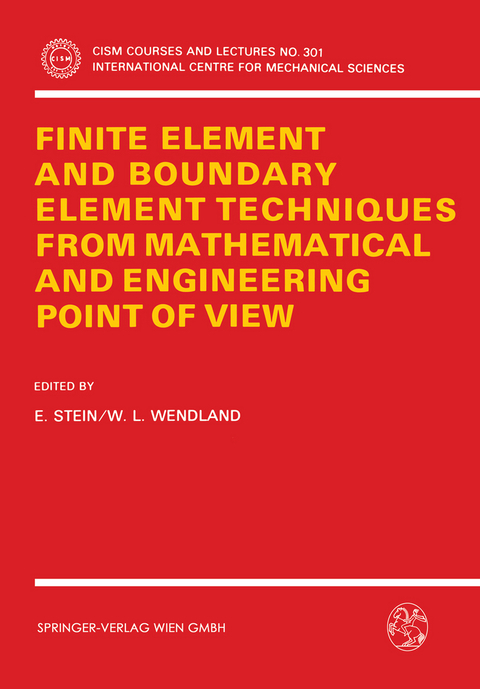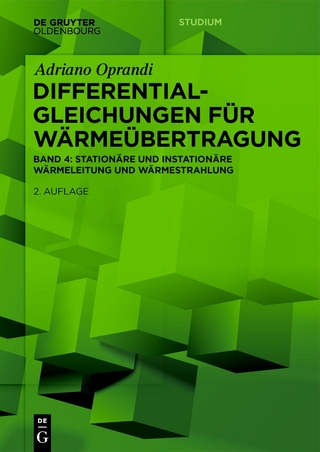
Finite Element and Boundary Element Techniques from Mathematical and Engineering Point of View
Seiten
1989
Springer Wien (Verlag)
978-3-211-82103-9 (ISBN)
Springer Wien (Verlag)
978-3-211-82103-9 (ISBN)
Traditional FEM and the more recent BEM underlie many engineering computational methods and corresponding software. Both methods have their merits and also their limitations. The combination of both methods will provide an improved numerical tool in the future. The aim of this book is to present significant basic formulations of FEM and BEM and to show their common practical and mathematical foundations, their differences and possibilities for their combination. These include variational foundations, FEM and BEM for linear and non-linear elasticity and potential problems, the combination of FEM-BEM asymptotic error analysis, modifications due to corner and crack singularities and corresponding improvement of convergence, plastic analysis, numerical algorithms and engineering applications.
| Erscheint lt. Verlag | 9.1.1989 |
|---|---|
| Reihe/Serie | CISM International Centre for Mechanical Sciences |
| Zusatzinfo | VII, 333 p. |
| Verlagsort | Vienna |
| Sprache | englisch |
| Maße | 170 x 244 mm |
| Gewicht | 594 g |
| Themenwelt | Mathematik / Informatik ► Mathematik ► Analysis |
| Mathematik / Informatik ► Mathematik ► Arithmetik / Zahlentheorie | |
| Mathematik / Informatik ► Mathematik ► Wahrscheinlichkeit / Kombinatorik | |
| Naturwissenschaften ► Physik / Astronomie ► Mechanik | |
| Schlagworte | algorithms • Analysis • convergence • Elasticity • Finite Element Method • Mathematica |
| ISBN-10 | 3-211-82103-1 / 3211821031 |
| ISBN-13 | 978-3-211-82103-9 / 9783211821039 |
| Zustand | Neuware |
| Informationen gemäß Produktsicherheitsverordnung (GPSR) | |
| Haben Sie eine Frage zum Produkt? |
Mehr entdecken
aus dem Bereich
aus dem Bereich
Buch | Softcover (2024)
De Gruyter Oldenbourg (Verlag)
CHF 83,90
Buch | Softcover (2024)
De Gruyter Oldenbourg (Verlag)
CHF 83,90


